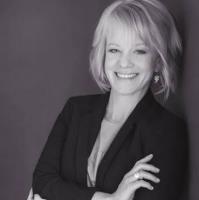Commentary on Psalm 43
Hermann Gunkel, famous for his work on the psalms, once noted, “The individual complaint songs form the basic material of the psalter.”1
He continued, “The order in many of these psalms is a characteristic one; first, the wailing, almost desperate lament and the passionate prayer; then, suddenly, the certainty of deliverance in a jubilant tone.”2
Unsurprisingly, if we open a commentary on the psalms, we’ll likely find some formulation of the following “order” we should expect to encounter in the individual lament psalms: first, the psalmist invokes God; second, the psalmist states their complaint; third, the psalmist petitions God to do something in response; fourth, the speaker states their trust in God’s ability to carry out the speaker’s request; fifth, the psalm ends with praise for and/or of God.
Yet what certitude or sureness do we find at the end of Psalm 43? There the speaker exclaims, “Why are you cast down, O my soul, and why are you disquieted within me? Hope in God; for I shall again praise him, my help and my God” (verse 5). These final words only point forward, to a time when the psalmist hopes to praise God again. There is no certainty.
The careful reader of the psalter will notice that they have already encountered the words that end Psalm 43 not once but twice before, both times in the immediately preceding psalm (42:5-6a, 11). The repeated lines are not the only similarity between Psalm 42 and Psalm 43. Both ask “Why must I walk about mournfully because of the oppression of the enemy?” (42:9; 43:2) and both lament the psalmist’s distance from God (“My soul thirsts for God, for the living God. When shall I come and behold the face of God?” [42:2); “For you are the God in whom I take refuge; why have you cast me off?” [43:2]). Moreover, the speaker of Psalm 42 and the speaker of Psalm 43 each desire to come before God once again (42:4; 43:3-4). These connections, combined with the fact that Psalm 43 lacks a superscription, have led many scholars to suggest the two psalms should be read as one, an idea further supported by several ancient manuscript traditions that combine them.
Read together, there is yet another time where we see the speaker’s soul “cast down”: “My soul is cast down within me; therefore, I remember you from the land of Jordan and of Hermon, from Mount Mizar” (Psalm 42:6). While this line perhaps tells us the reason for lamentation (from the land of the Jordan, the psalmist is far from Jerusalem and God’s temple where they previously took part in pilgrimage [Psalm 42:4]), the psalmist nevertheless also remembers God from afar. Here we might invoke Desmond Tutu, who once said, “Hope is being able to see that there is light despite all of the darkness.” Even far from God, even taunted by enemies, even in the darkness of a moment when the soul feels disquiet, the psalmist remembers and hopes for God.
Next “deep calls to deep (tehom-el-tehom qore) at the thunder of your cataracts, all your waves and your billows have gone over me” (Psalm 42:7). The Hebrew tehom, “deep,” often signifies chaos. So “darkness covered the face of the deep” when God begins to create out of the primeval chaos waters (Genesis 1:2) and later the fountains of the deep burst forth to flood the earth, reversing God’s previous creation (Genesis 7:11). If the psalmist here is recounting an experience with God, it is one that draws on a Hebrew word often associated with chaos and, perhaps, darkness. Remember Jonah’s prayer from the belly of the great fish, where he recounts how “the waters closed in over me; the deep (tehom) surrounded me” (Jonah 2:5).
Yet even from here the psalm returns to hope and light: “By day the LORD commands his steadfast love” (Psalm 42:8). In fact, even at night, in the darkness, God’s “song is with me, a prayer to the God of my life” (42:8). The psalm continues to waver between hope and despair, light and darkness, petitioning God to act (“Vindicate me!” [Psalm 43:1]) but also asking “Why must I walk about mournfully because of the oppression of the enemy?” (Psalm 42:2). There is both positive anticipation, “O send out your light and your truth, let them lead me … Then I will go to the altar of God, to God my exceeding joy” (Psalm 43:4), and yet also a return to the psalmist’s troubled state, “Why are you cast down, O my soul, and why are you disquieted within me?” (Psalm 43:5).
The individual lament may be “the basic material of the psalter,” but Psalms 42-43 prompt us to remember that these psalms take many forms and follow many orders. The ending “hope in God” does not require the psalmist — or any of us — to ignore the reality of darkness. Yet these final words point forward, even if there is not yet certainty or jubilation. Such an ending in a lament psalm captures how life can rapidly and repeatedly move from the despair of a “cast down” soul to hope, from the darkness of the deep to light, again and again.
Notes
1. Hermann Gunkel, Introduction to the Psalms: The Genres of the Religious Lyric of Israel, completed by Joachim Begrich, trans by James D. Nogalski (Macon, GA: Mercer University Press, 1998), 122 n. 2. Italics in original.
2. Hermann Gunkel, The Psalms: A Form Critical Introduction, trans. Thomas M. Horner (Philadelphia: Fortress Press, 1967), 20.


November 5, 2017